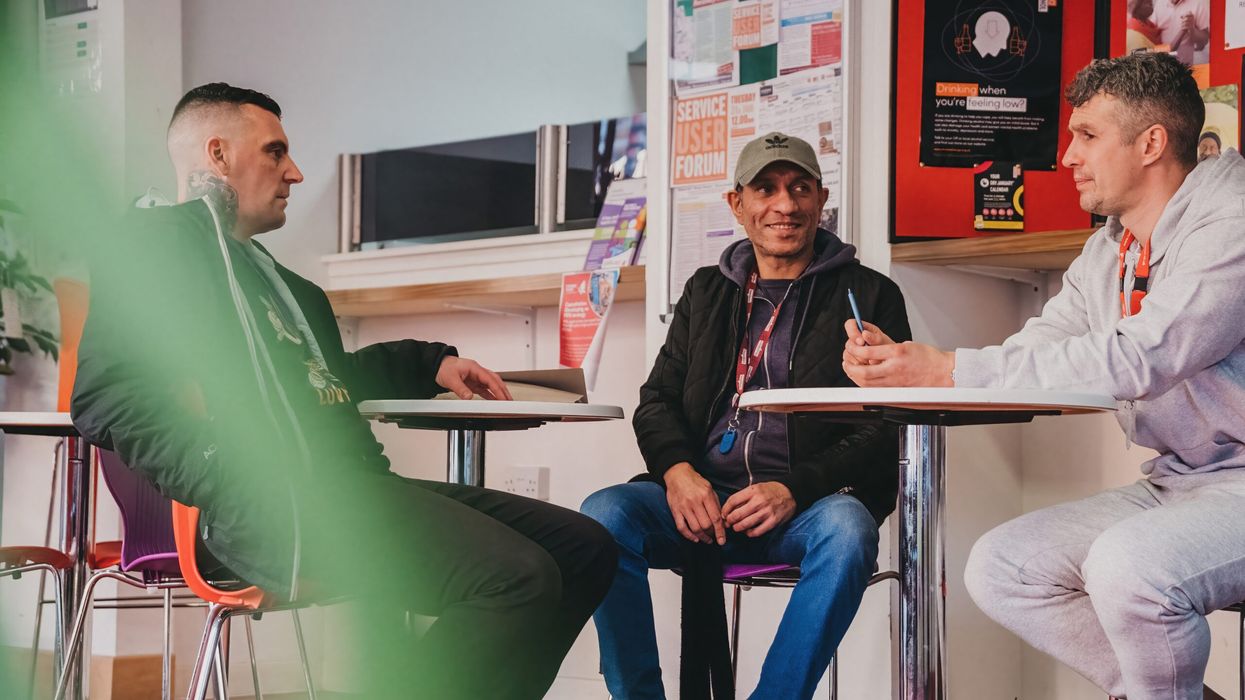RESEARCHERS have called for more equitable access to drug treatment and support for people in minority ethnic groups after a study found they faced barriers such as stigma and lack of culturally competent services or ones they have no faith in them.
Funded by the Department of Health and Social Care, the National Centre for Social Research (NatCen), in collaboration with RSM UK Consulting, explored non-opiate and cannabis drug use in minority ethnic groups.
Providing culturally appropriate approaches to ensure a wider reach among users is among the recommendations of the report for drug rehabilitation services.
Priya Khambhaita, project director and NatCen research associate, said: “We found a wide range of barriers to accessing support and treatment services, including stigma, shame and fear of judgement; a lack of awareness of available services; language barriers; lack of trust in services; limitations in knowledge around different drugs and the potential impacts of use; and covering the cost of accessing and receiving treatment.
“Our research helps to fill this gap in the evidence base, providing important insights which can be applied to help improve access and engagement with treatment and support.”
The team carried out in-depth interviews with professionals and people from minority ethnic groups with experience of problematic drug use.

Leicester is one of the most diverse cities in the country. The 2021 census showed that 51.9 per cent of the population are from a non-white background and Asians (43.4 per cent) account for the largest single ethnic group.
However, health and social care provider, Turning Point, found that very few Asian clients accessed their service. In 2018, only seven per cent of the people Turning Point supported were from a diverse background.
According to Leicestershire County & Rutland NHS Primary Care Trust, it is estimated that half of all opiate users in Leicestershire are not receiving treatment.
A UK Drug Policy commission survey found that in some instances, racism within services was also reported as a barrier to treatment.
Dilesh Popat is Turning Point’s diverse community team leader and is based in Leicester. He told Eastern Eye stigma stops south Asians from accessing their services.
“People [south Asian communities in Leicester] are afraid to ask for help from their GPs or their local drug and alcohol services because of the perceived shame it will bring upon their families,” said Popat.
“Families often have their own ideas on how to help their loved ones overcome alcohol and substance use.
“One is to send the client to the subcontinent in the belief they might not be able to get hold of the drugs or alcohol.
“However, even if this does have success, there is the risk of relapse when they return home, because there is no knowledge of addiction and treatment.”
Turning Point’s drug and alcohol service in Leicester has been working with the local community to support clients from a south-Asian background.
Popat added: “We at Turning Point not only want to raise awareness of drug and alcohol services that are available, but also remove the stigma associated with accessing these services.
“We have taken the approach to work with the community, in the community, for the community.”
He described building relationships with local community groups to help south Asians struggling with drug and alcohol issues.
“Among Muslims, Hindus and Sikhs – the one thing they all have in common is they all meet in big gatherings, at temples, gurdwaras or mosques,” he said.
“We work with these organisations who are already established within the community – with community leaders, spiritual leaders, education leaders and offer them support, training and education.”
Spinney Hill Recovery was set up by two imams (Muslim faith leaders) to help a growing number of Muslims in Leicester who became addicted to drugs and/or alcohol.
Mushtaq Dakri, one of the founders, said Muslim clients felt mainstream services were not aware of the specific needs of different cultures.
“There’s always been drugs consumed in the area,” Dakri told Eastern Eye. “But there was a change we noticed of the type of drugs being consumed. We went from cannabis and class B drugs to class A drugs, synthetic drugs and alcohol.
“People were becoming addicted, and they were asking us for help. Initially, we referred them to commissioned services. However, over a period, the feedback we got was that they didn’t feel like it was meeting their needs. They didn’t feel like the services understood them culturally. They didn’t like having to go to town and be seen by members of the community.”
When Spinney Hill Recovery approached Turning Point six years ago, substance abuse of heroin, crack cocaine and alcohol was already rife within the community. Popat decided to create a specialised service to meet the specific needs of this community.
Spinney Hill Recovery now refers clients to Turning Point which aims to get the client assessed and into treatment within 24 hours.
There were further challenges – clients relapsed because there wasn’t anything for them to do when they came out of rehab.
Spinney Hill put together a package of activities for every day of the week to keep service users engaged and to reduce the rates of relapse. It now receives funding from Turning Point and among the facilities on offer are a gym, a pool table, a kitchen, a group room and a room for one-to-one counselling.
The service is open to everyone, not just Muslims. The goal is to use spirituality as a tool to recovery. Imams deliver spiritual classes and work with the clients.
“We decided to establish something for ourselves that would meet the needs of our community,” said Dakri.
“When we first looked at this around 15 years ago, there was very little interest from the community because the view was ‘drug addiction was something that happened to other people’.
“As time went on, people realised, ‘this is on our doorstep and we can’t ignore this anymore’. There was a realisation something had to be done.”
A 2019 rapid evidence review conducted for Alcohol Change UK found that people from ethnic minority groups were less likely to access services and also, may be less likely to seek help for alcohol use until they have experienced serious health consequences.
According to the British Medical Journal, for every 100 white men dying from alcohol-related causes, there are 160 Asian men who lose their lives to similar causes.
Drinking is a major problem among the Sikh community.
A BBC investigation found that although drinking alcohol is forbidden in Sikhism – 27 per cent of British Sikhs report having someone in their family with an alcohol problem.

The Sikh Recovery Network is a national organisation that helps support people with drug and alcohol problems from the community. They run online and face-to-face groups around the country, including a Leicester-based group.
Jaz Rai is founder and chairperson of the Sikh Recovery Network. He regularly talks about his own addiction and recovery journey.
Rai told Eastern Eye, “Punjab has a strong agricultural background, and alcohol consumption is often associated with the farming community.
“Celebratory drinking may be seen as a way to unwind and socialise after a day of hard work.
“Punjabi culture places a strong emphasis on hospitality and celebration, peer pressure is also a huge factor and young people look at the elders who will encourage them to drink, sometimes.”
He added, “Alcohol addiction is a taboo in the Punjabi community because there is a lot of shame, guilt and fear of being ostracised from its community by some problem drinkers.”
Turning Point works with Spinney Hill and the Sikh Recovery Network to reach more south Asians who need help.
“We’ve got a number of volunteers and peer mentors who have come through recovery via the Spinney Hill Recovery and the Sikh Recovery Network and are now working for Turning Point as peer mentors and volunteers,” said Popat.
“It’s something we are trying to do at Turning Point – reflect our clients through our recovery workers. We are asking the question, are we culturally competent as a service? Do we have enough people of colour within our staff? Do we have a variety of different languages spoken by support workers? Do we provide information in different languages? We celebrate Christmas, but do we celebrate Eid or Diwali or Vaisakhi?”
He added: “We are sharing the work we do with south Asians in Leicester to our services across the country so that they can meet the needs of different communities.
“It’s all about spreading awareness to the people we support and colleagues.”












